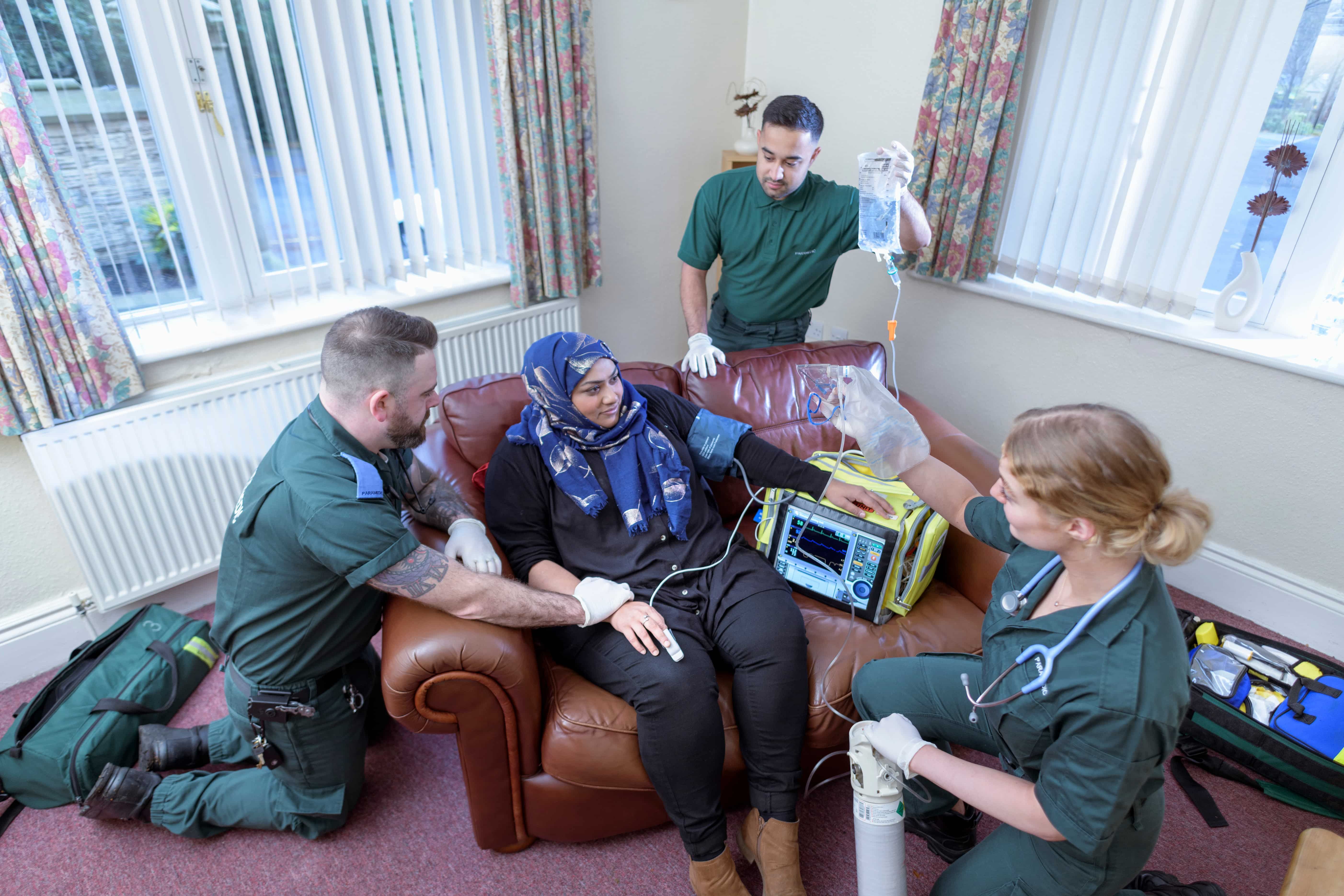Future careers
An Allied Health Professions and Public Health degree can lead to a variety of exciting and fulfilling careers. Find out more about your career opportunities.
Close
An Allied Health Professions and Public Health degree can lead to a variety of exciting and fulfilling careers. Find out more about your career opportunities.

Our BSc (Hons) Paramedic and Out of Hospital Care course is approved by the HCPC (Health and Care Professions Council) and upon successful completion of the course you will be eligible to apply to register with the HCPC as a paramedic.
The typical salary for a paramedic is in alignment with the NHS Agenda for Change pay scales. According to Prospects, a starting salary for a paramedic is Band 5, usually progressing to a band 6 after two years through following a newly qualified paramedic pathway. Paramedics who achieve additional qualifications and skills such as critical care or trauma to become team leaders or senior paramedics can progress to a band 6 or 7 depending on your experience. If you are a paramedic working in primary care or a GP practice, you will likely progress to band 7 after a year. A consultant paramedic can achieve a Band 8c salary.
Possible career options for paramedics include the NHS, but also out of hospital environments including:
Senior Lecturer Helen McAdam says "I am aware of many previous student paramedics that have gone on to achieve great things including joining the Specialist Paramedic teams, CARU teams, became research leaders and the Great North Air Ambulance. Our programme truly sets our students up for exciting careers in all aspects of emergency care, and I couldn't be prouder to be a part of this team here at Sunderland inspiring and motivating the students to set their sights high and seek exciting future prospects."

Our BSc (Hons) Occupational Therapy and BSc (Hons) Occupational Therapy Accelerated courses are approved by the HCPC and upon successful completion of your course, you will be eligible to apply for registration with the HCPC as a Graduate Occupational Therapist. Our courses are also accredited by the World Federation of Occupational Therapists and Royal College of Occupational Therapists (RCOT). You can apply to RCOT for professional memberships once you graduate.
The employment prospects for new occupational therapists are good, as unlike graduates with qualifications that are not specifically career-orientated, new occupational therapy graduates have the advantage of a structured career path with good long-term prospects in this key worker profession. The typical salary for an occupational therapist is in alignment with the NHS Agenda for Change pay scales. According to Prospects, the starting salary for an occupational therapist is Band 5. A more experienced occupational therapist such as a specialist occupational therapist can obtain band 6, with the ability to progress to band 7 with further specialisation. For senior occupational therapists, such as clinical or professional leads, clinical managers or consultants, they can progress to bands 8a and 8b.
Occupational therapists can specialise in mental health, physical health and learning disabilities, and work in a variety of settings including:
Senior lecturer Nina Bedding says "We are a dynamic, committed and supportive staff team, who are here to motivate students throughout their journey to becoming an occupational therapist. We are proud of everyone of our current students and graduates and love being a part of their learning experience."

Our BSc (Hons) Physiotherapy course is approved by the HCPC and upon successful completion of your course, you will be eligible to apply for registration with the HCPC as a Physiotherapist. Our course is also accredited by The Chartered Society of Physiotherapy (CSP).
The typical salary for a physiotherapist is in alignment with the NHS Agenda for Change pay scales. According to Prospects, the starting salary for a qualified physiotherapist is a band 5, with senior physiotherapists progressing to a band 6. You can progress to a band 7 through further training and experience to become clinical specialist or team leader. Physiotherapists can also achieve a band 8 through roles including advanced clinical practice, extended scope or clinical lead physiotherapists can earn a band 8a, rising to a band 8b for consultant physiotherapist roles. Through management roles, physiotherapists can also progress to a band 8c.
Graduate Physiotherapists are key workers and eligible to work in multiple organisations including:
Programme Lead John Stephens says "Physiotherapy is such a diverse and exciting profession that provides a multitude of career opportunities not just in clinical practice, but across research, leadership and educational roles."